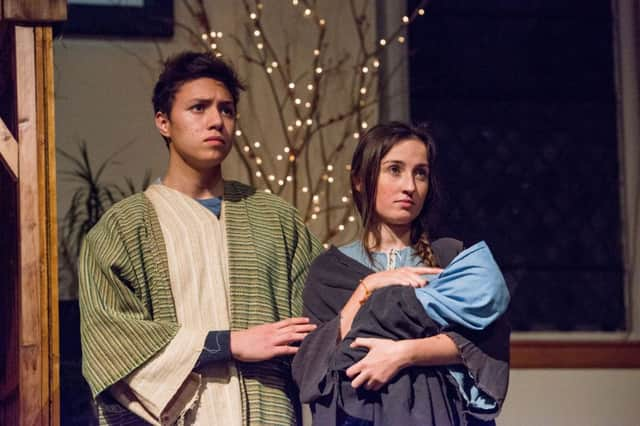The Holy Family were migrants and refugees


‘And it came to pass in those days, that there went out a decree from Caesar Augustus that all the world should be taxed. …And Joseph also went up from Galilee … into Judaea, unto the city of David, which is called Bethlehem (because he was of the house and lineage of David) to be taxed with Mary his espoused wife, being great with child.”
Today, we would perhaps regard Joseph as a migrant worker – he was living and working in Galilee, even though his family home was Bethlehem.
Advertisement
Hide AdAdvertisement
Hide AdThe Holy Family fled from Bethlehem to Egypt soon after the birth of Jesus, in order to escape the wrath of Herod. Today, we would characterise them as refugees – because Herod’s slaughter of the innocents demonstrated that they had a well-founded fear of persecution.
Economic migration reflects the simple desire of people to improve their lot. In Scotland, we should understand this well: after all, over the centuries Scotland has both exported people seeking economic opportunities elsewhere, and has been enriched by economic migrants. At the same time, we recognise the moral imperative to give asylum to people who have fled their home country because of a well-founded fear of persecution.
The law on migration is, today, complex, and involves both EU and domestic law. Free movement of workers is one of the fundamental principles upon which the European Union is built – it is a right which we all enjoy as EU citizens. Asylum law is founded on the EU Dublin Regulation. Immigration from outside the EU is basically a matter for domestic law.
With migration come other legal questions and issues. Family lawyers may have to deal with the implications of trans-national marriages, and the consequences if such marriages break down. Criminal lawyers may encounter extradition and human trafficking. Migrants may require advice on access to housing, employment, social security and other services. At a practical level, there may be linguistic challenges and complications arising from the potential relevance of laws and legal systems other than our own.
Internationally, the displacement of peoples presents very real humanitarian and political challenges. The International Rescue Committee estimates that one third of Syria’s population has been driven from their homes by violent conflict. The International Organisation for Migration reports that more than 3000 people have died in 2014 crossing the Mediterranean seeking to reach Europe.
The Council of European Bars and Law Societies, the umbrella organisation for European Bars and Law Societies, recently issued a declaration on migration. That declaration emphasises the role of lawyers in securing the rights and dignity of migrants, as well as the responsibility of Member States and the EU itself to ensure that those rights are practical and effective.
The Declaration recognises that migration poses joint challenges for the Member States of the European Union, and for the Union itself, as well as other states. It recognises that migration is complex and diverse and gives rise to a range of concerns and issues across a broad spectrum of rights and laws. It seeks to set those concerns in the context of defence of the rule of law, the protection of fundamental rights and freedoms and the democratic values shared by all the Council’s member bars.
These values and ideals are not abstractions. They are ultimately about the nitty-gritty job of seeking to ensure that individuals and families – whether they be migrants or not – are treated fairly and with respect.
Advertisement
Hide AdAdvertisement
Hide AdLawyers, who have to deal every day with people with real problems, understand that. We may be reminded of it again, at this time of year, as we reflect on the Christmas story – the story of one migrant family long, long ago.
• James Wolffe is Dean of the Faculty of Advocates: www.advocates.org.uk
SEE ALSO